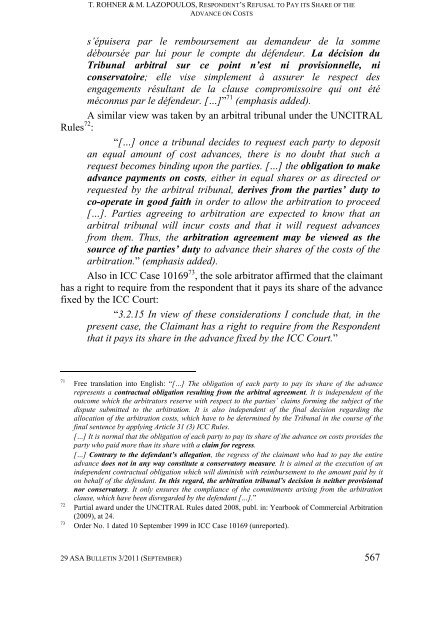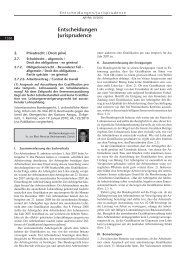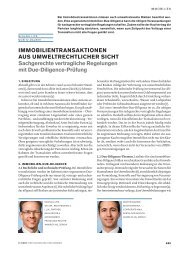ASAB 29-3 Thomas Rohner Michael Lazopoulos - Pestalozzi ...
ASAB 29-3 Thomas Rohner Michael Lazopoulos - Pestalozzi ...
ASAB 29-3 Thomas Rohner Michael Lazopoulos - Pestalozzi ...
You also want an ePaper? Increase the reach of your titles
YUMPU automatically turns print PDFs into web optimized ePapers that Google loves.
T. ROHNER & M. LAZOPOULOS, RESPONDENT’S REFUSAL TO PAY ITS SHARE OF THE<br />
ADVANCE ON COSTS<br />
s’épuisera par le remboursement au demandeur de la somme<br />
déboursée par lui pour le compte du défendeur. La décision du<br />
Tribunal arbitral sur ce point n’est ni provisionnelle, ni<br />
conservatoire; elle vise simplement à assurer le respect des<br />
engagements résultant de la clause compromissoire qui ont été<br />
méconnus par le défendeur. […]” 71 (emphasis added).<br />
A similar view was taken by an arbitral tribunal under the UNCITRAL<br />
Rules 72 :<br />
“[…] once a tribunal decides to request each party to deposit<br />
an equal amount of cost advances, there is no doubt that such a<br />
request becomes binding upon the parties. […] the obligation to make<br />
advance payments on costs, either in equal shares or as directed or<br />
requested by the arbitral tribunal, derives from the parties’ duty to<br />
co-operate in good faith in order to allow the arbitration to proceed<br />
[…]. Parties agreeing to arbitration are expected to know that an<br />
arbitral tribunal will incur costs and that it will request advances<br />
from them. Thus, the arbitration agreement may be viewed as the<br />
source of the parties’ duty to advance their shares of the costs of the<br />
arbitration.” (emphasis added).<br />
Also in ICC Case 10169 73 , the sole arbitrator affirmed that the claimant<br />
has a right to require from the respondent that it pays its share of the advance<br />
fixed by the ICC Court:<br />
“3.2.15 In view of these considerations I conclude that, in the<br />
present case, the Claimant has a right to require from the Respondent<br />
that it pays its share in the advance fixed by the ICC Court.”<br />
71<br />
72<br />
73<br />
Free translation into English: “[…] The obligation of each party to pay its share of the advance<br />
represents a contractual obligation resulting from the arbitral agreement. It is independent of the<br />
outcome which the arbitrators reserve with respect to the parties’ claims forming the subject of the<br />
dispute submitted to the arbitration. It is also independent of the final decision regarding the<br />
allocation of the arbitration costs, which have to be determined by the Tribunal in the course of the<br />
final sentence by applying Article 31 (3) ICC Rules.<br />
[…] It is normal that the obligation of each party to pay its share of the advance on costs provides the<br />
party who paid more than its share with a claim for regress.<br />
[…] Contrary to the defendant’s allegation, the regress of the claimant who had to pay the entire<br />
advance does not in any way constitute a conservatory measure. It is aimed at the execution of an<br />
independent contractual obligation which will diminish with reimbursement to the amount paid by it<br />
on behalf of the defendant. In this regard, the arbitration tribunal’s decision is neither provisional<br />
nor conservatory. It only ensures the compliance of the commitments arising from the arbitration<br />
clause, which have been disregarded by the defendant […].”<br />
Partial award under the UNCITRAL Rules dated 2008, publ. in: Yearbook of Commercial Arbitration<br />
(2009), at 24.<br />
Order No. 1 dated 10 September 1999 in ICC Case 10169 (unreported).<br />
<strong>29</strong> ASA BULLETIN 3/2011 (SEPTEMBER) 567




